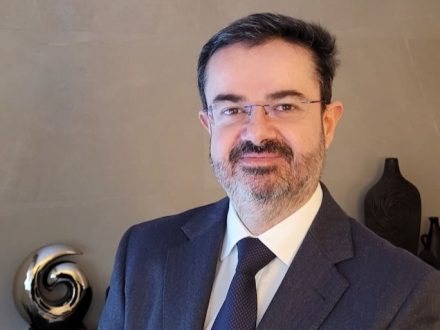Barracuda Networks: ‘Artificial Intelligence Regulation is Necessary, but We Must Have Realistic Expectations’

Miguel Lopez, director for South EMEA at Barracuda Networks, talks about cybersecurity challenges and strategies in Europe.
In his recent appointment as Director for Southern EMEA at Barracuda Networks, Miguel Lopez takes on the responsibility of leading the region’s cybersecurity strategy. In this interview, Lopez shares his views on current industry challenges, the role of artificial intelligence in the evolution of cyberattacks and how Barracuda is adapting its solutions to address growing threats. He also reflects on the impact of new cybersecurity regulations and the importance of a solid regulatory framework in Europe to strengthen the resilience of businesses and public administrations.
Appointment as Director for Southern EMEA
– Miguel, first of all, congratulations on your new role as Director for South EMEA at Barracuda Networks. To begin with, how has your first impression of Barracuda been in this new role?
Well, during this time I have been taking the pulse of the situation in each country. The cybersecurity issues are very similar everywhere. Companies and public administrations face the same challenges: increasing attacks and lack of technical and human resources to respond. This is why Barracuda is well positioned with an offering that covers multiple attack vectors on a unified platform. This simplifies management for our customers and allows them to focus on their core business.
– What are the strategic objectives and priorities for Barracuda in Southern EMEA?
A priority is to maintain a flexible distribution channel, tailored to each market. A growing challenge is to serve both traditional and managed services-based partners, known as MSPs. Our investment is geared towards building a channel that works in both models, and that allows partners to move between them or even work in both modalities. Another important challenge is to overcome the fear of cyber security in our customers, as fear mongering can paralyse businesses. Our goal is to simplify cybersecurity and make it accessible with practical solutions.
– You mentioned that Barracuda has a tailored strategy for each market in the region, what growth and innovation plans do you have for these countries?
The demand in this region is quite homogeneous and the trends are similar to those in other European countries. There is a growing interest in services such as XDR, EDR and SOC as a Service, which allow companies to address their cybersecurity needs in an efficient way. This is key, as the market does not have enough specialised profiles, especially in the public sector. So, with these services, we help cover a critical demand in all these markets.
AI in cyber security
– Talking about threats, we know that ransomware and email attacks are very frequent. Have you noticed an increase in the effectiveness of these attacks with the use of artificial intelligence?
Artificial intelligence is revolutionising the cyberattack landscape, and not just in the case of ransomware. Today, it is much easier to launch phishing attacks with high precision thanks to these tools. In addition, AI makes it possible to overcome language barriers, which extends the reach of cybercriminals. Previously, grammatical or stylistic errors revealed the source of an attack, but now they can be carried out in any language with near-perfect quality.
– How does Barracuda respond to these cyber-attacks, and what solutions do you offer to counter the effects of artificial intelligence on cybercrime?
At Barracuda, we have been using advanced artificial intelligence and machine learning to optimise our solutions for years. These technologies allow us to increase security without increasing false positives, a common problem in the industry. In our SOC as a Service, for example, artificial intelligence filters events and alerts from thousands of devices, identifying the real threats so that the human team can respond immediately and effectively.
New European regulations
– Finally, I would like you to share your opinion on the new regulations around artificial intelligence and the NIS II directive.
The regulation of artificial intelligence is necessary, but we must have realistic expectations. It is a new and evolving technology, so any initial regulation will have limitations. Even so, it is vital to establish a regulatory framework to prevent misuse. As for NIS II, I believe it is an important step towards improving cybersecurity in Europe. If companies and public administrations incorporate these practices into their daily operations, we will significantly reduce the risks.
– So, do you think having such a detailed framework could reveal to cybercriminals how we operate?
On the contrary, I believe having a robust framework gives us an advantage. Good cybersecurity practices do not make us vulnerable; rather, they strengthen our position against possible attacks. If Europe continues to set strict cybersecurity regulations, we will be more resilient and ultimately, more competitive.